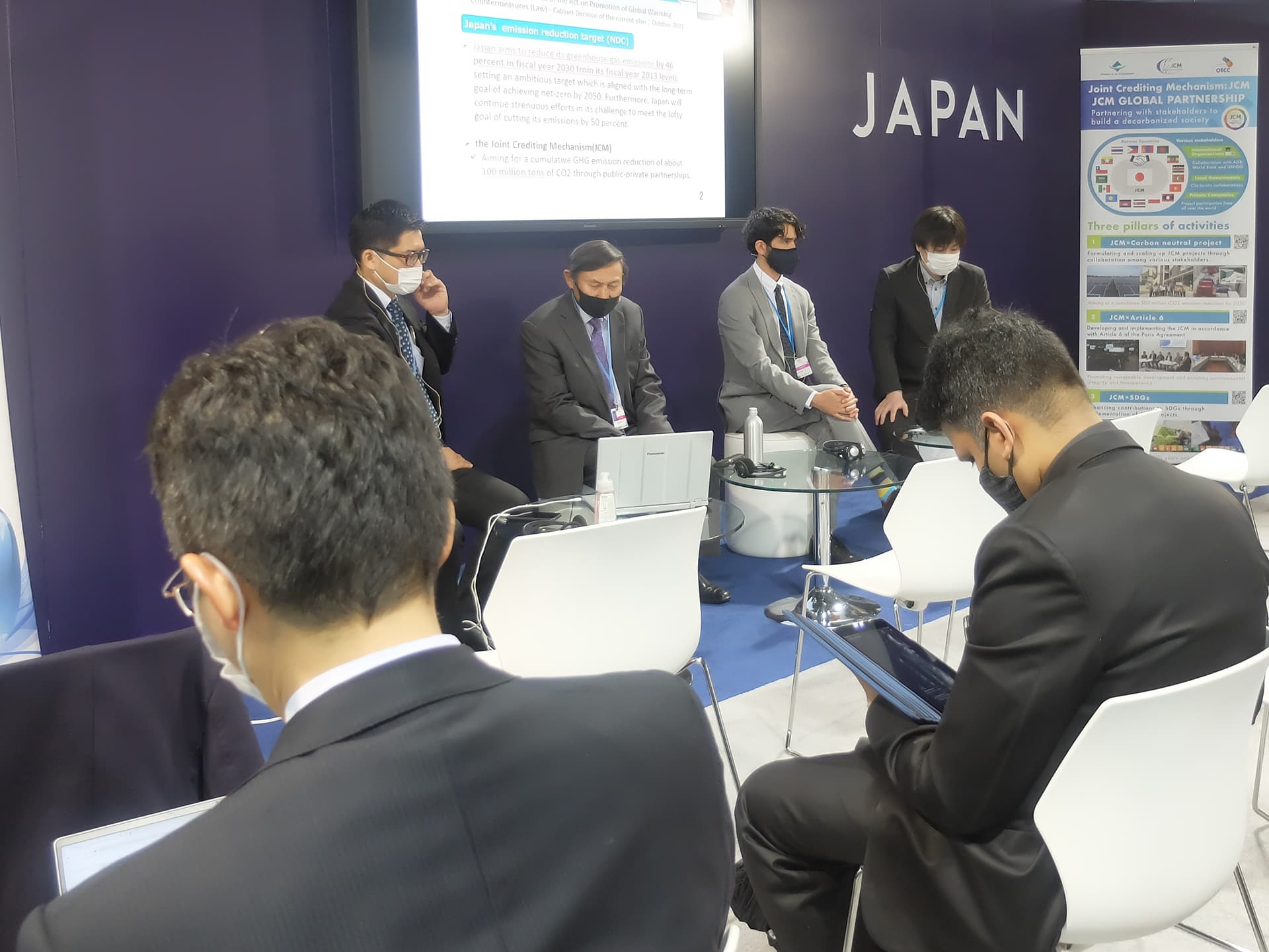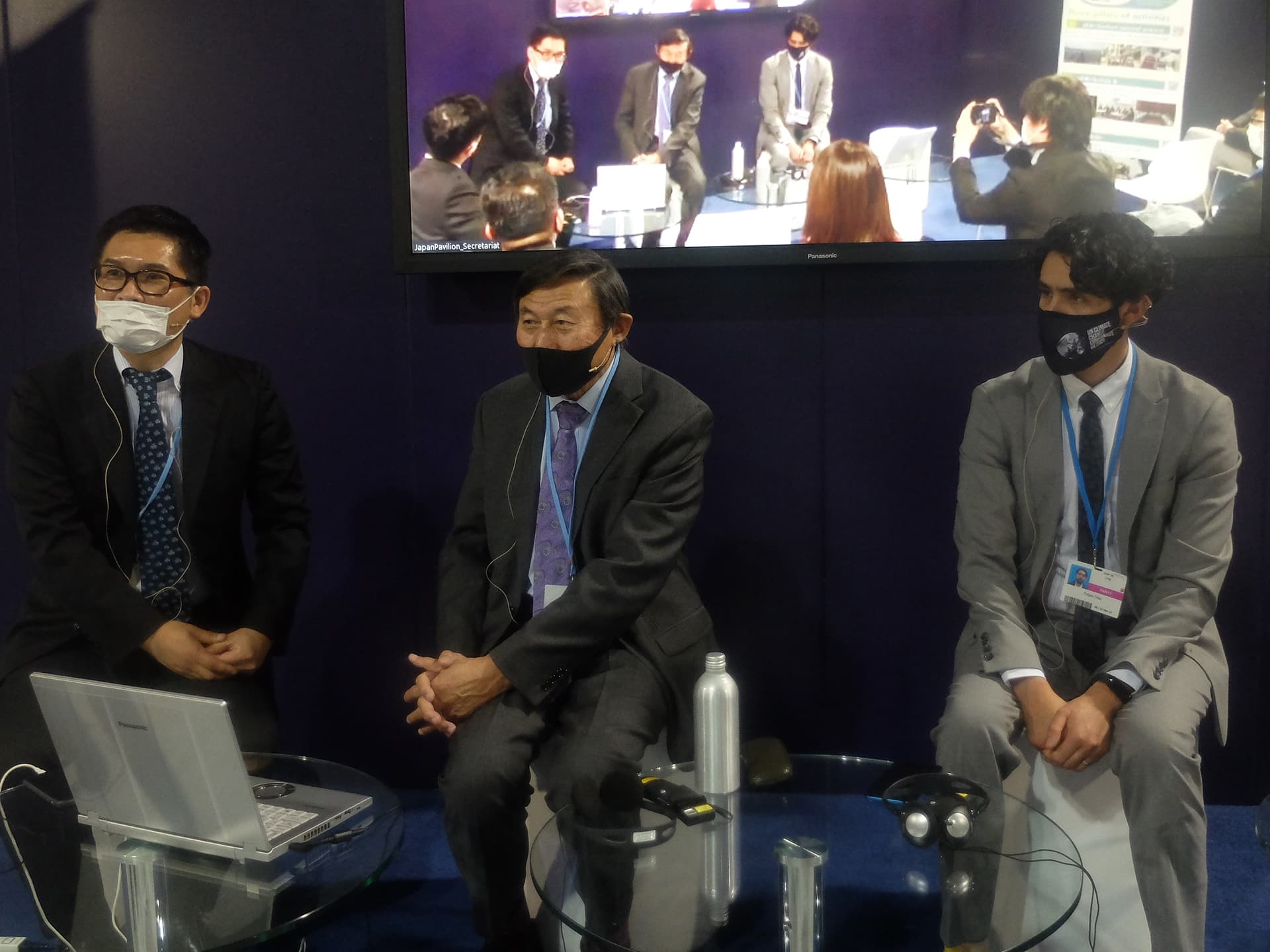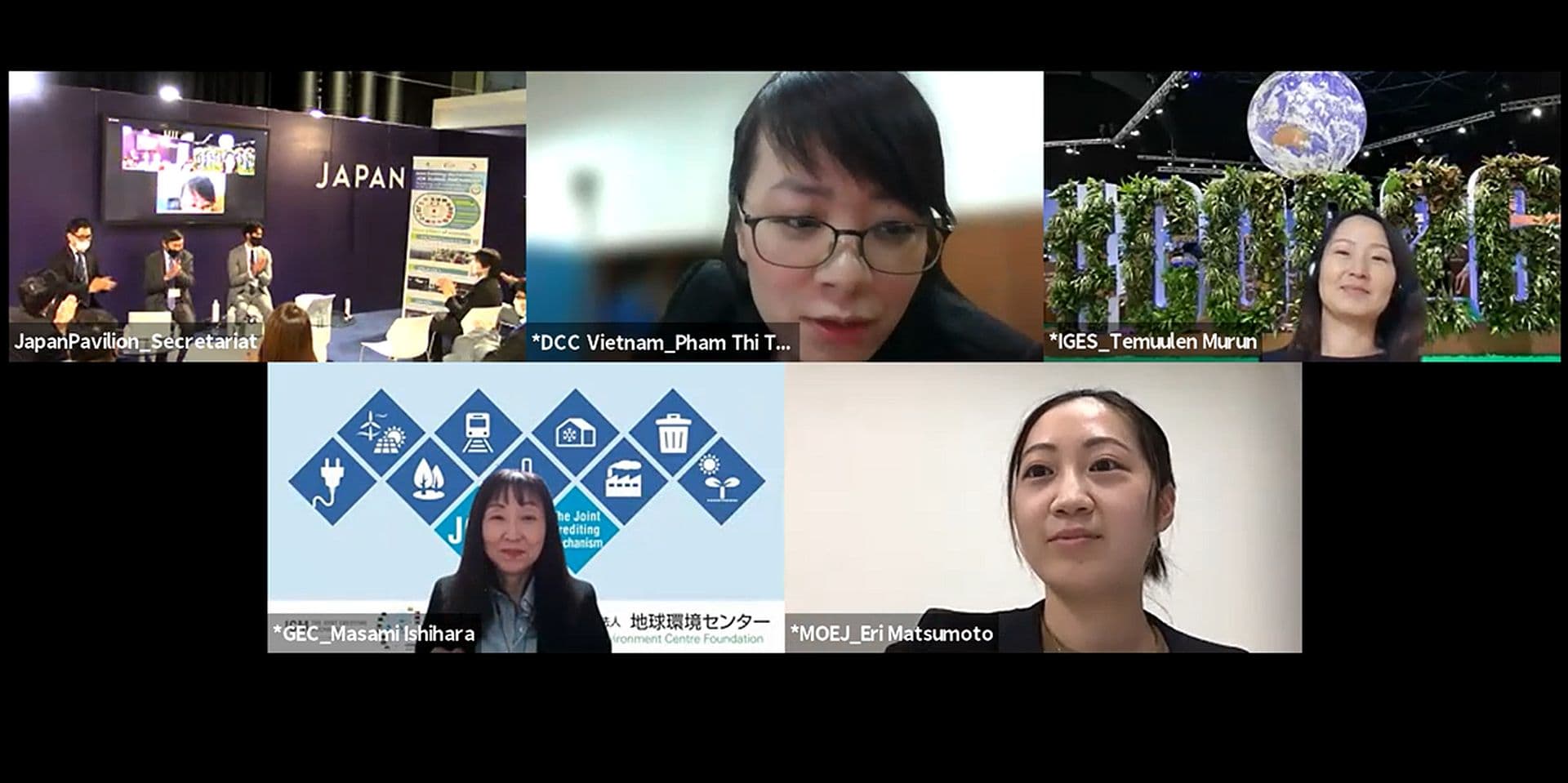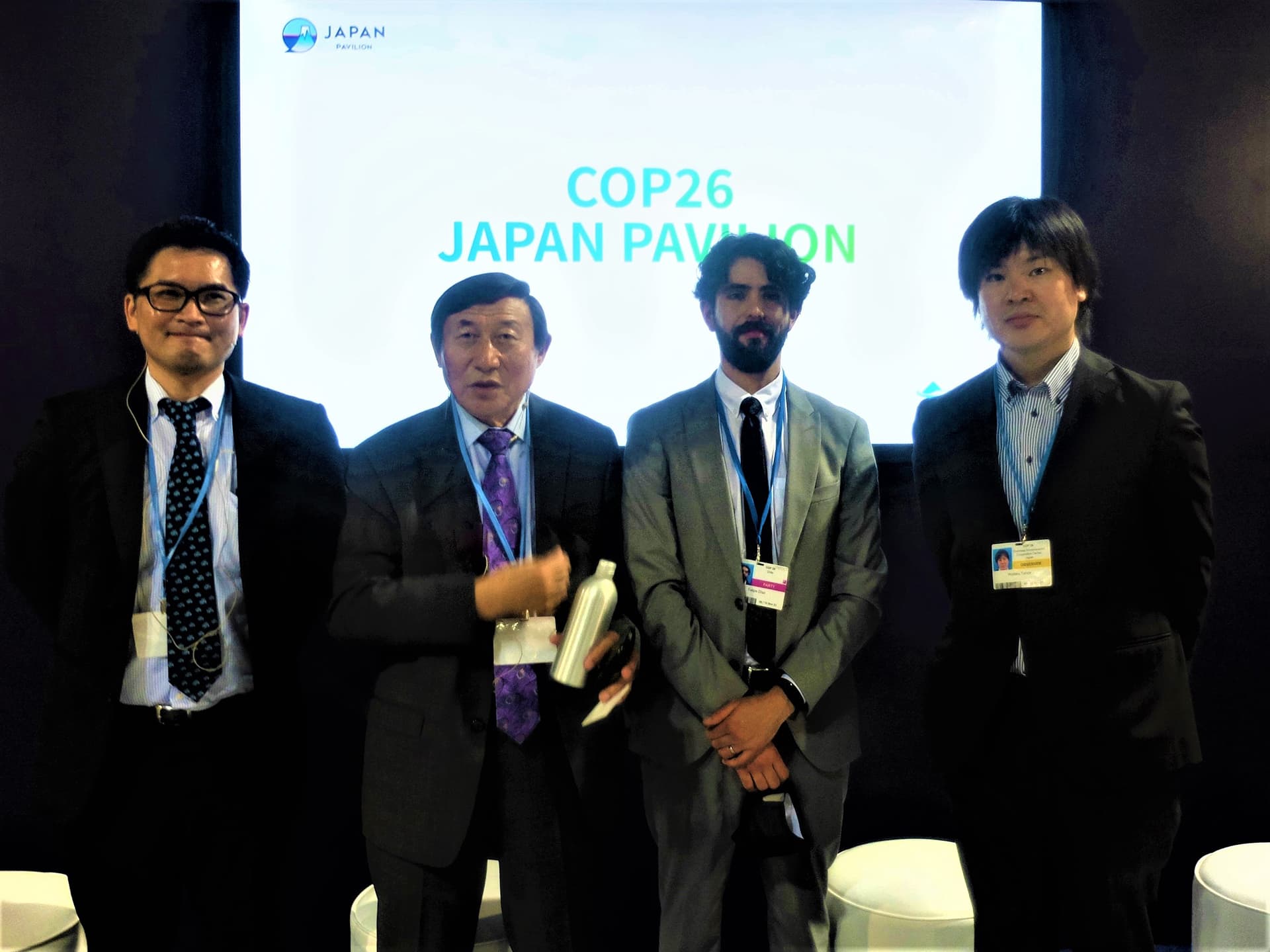2021.11.8 MON
10:30 - 12:00
2021.11.8
Implementing the JCM and creating various benefits for stakeholders
Ministry of the Environment, Japan (MOEJ)
Co-organizer
Overseas Environmental Cooperation Center, Japan
Seminar abstract
The JCM is implemented through bilateral cooperation between Japan and 17 partner countries to promote diffusion of decarbonizing technologies and GHG mitigation. A part of the quantified GHG emission reduction to be used to achieve Japan's emission reduction target, and the JCM also contributes to NDC implementation in partner countries. In addition, the JCM generates various co-benefits as well as GHG mitigation which contribute to sustainable development including SDG in partner countries.
This event will focus on such JCM’s roles and benefits through the survey result by JCM relevant organizations and the latest updates from partner countries. In the panel discussion, perspectives and expectations for expanding JCM’s benefit will be discussed.
Speakers
- • Facilitator: OECC
• OECC
• Ministry of Environment and Tourism, Mongolia
• Ministry of the Environment, Chile
▼Online speakers
• Ministry of the Environment, Japan (MOEJ)
• Institute for Global Environmental Strategies (IGES)
• Global Environment Centre Foundation (GEC)
• Ministry of Natural Resources and Environment, Vietnam
Session Summary
This event was facilitated by Mr. Makoto Kato from the OECC. Ms. Eri Matsumoto from the Ministry of the Environment, Japan explained the target of Japan's NDC, and said that the JCM contributes to the achievement of the NDC target with the cumulative CO2 reduction target of about 100 million tons through the collaboration between public and private sector. Mr. Wataru Tohze from the OECC outlined the various benefits of implementing the JCM, as utilization of carbon market mechanisms including the JCM is based on the cooperative approach of Article 6.2 of the Paris Agreement. Ms. Temuulen Murun from the Institute for Global Environmental Strategies (IGES) explained the Sustainable Development Guidelines (SD Guidelines) in JCM partner countries, and shared the research results on the contribution to the achievement of SDGs by the JCM. Mr. Masami Ishihara from the Global Environment Center Foundation (GEC) shared the results of an online survey aimed at assessing the degree of implementation and awareness for gender guidelines by JCM project participants.
Dr. Batjargal Zamba, a speaker from JCM partner country, Mongolia, said that JCM projects contrbute to GHG emissions reduction in each sector and to solve social issues such as air pollution in Mongolia. Ms. Pham Thi Tra My, a speaker from JCM partner country, Vietnam, explained the status of JCM implementation in the country, and explained the benefits by the JCM such as promoting regional and international cooperation and sharing experiences among that. Mr. Felipe Diaz, a speaker from JCM partner country, Chile, mentioned that the mitigation action based on Article 6 of the Paris Agreement is stated in the Chile's new NDC, and that JCM projects contribute to GHG emission reduction and funding to introducing decarbonization technologies in Chile.
Finally, in the panel discussion, one question about what the request to Ministry of the Environment, Japan and related organizations including IGES, GEC and OECC were asked to three speakers from partner countries, and they answered for the questioon with their exptectation such as (1) further financial support, (2) measures to promote further project participation toward expanding the scale of the JCM (including expanding target sector), and (3) further cooperation to achieve long-term strategy with sharing and discussing progresses and achievements of the JCM.
Message and Results
As a result of this side event, the various benefits by the JCM in each partner country were shared. These beneftis are not only to the national policies and achieving target of GHG emission reduction in partner countries as the countermeasure of climate change, but also to facilitation of efforts by private sector toward decarbonization society and to solution for social issues. It is also noteworthy that these benefits were shown by the goals of the SDGs as clear indicator. In order to promote the achievement of GHG reduction targets through the JCM and the creation of further benefits by the JCM, it is expected to form further good practices that meet the needs of partner countries.




2021.11.8 MONTimetable
13:00 - 14:30
2021.11.8
15:00 - 16:30
2021.11.8
Japan Climate Initiative (JCI)
17:00 - 18:30
2021.11.8
Sumitomo Forestry Co., Ltd. / IHI Corporation
